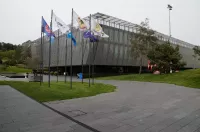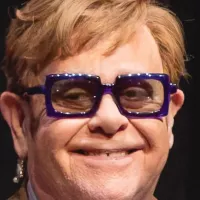The Hungary national football team represents Hungary in international men's football, overseen by the Hungarian Football Federation. They have a history of participating in major tournaments, with nine FIFA World Cup appearances and five UEFA European Championship appearances. Their home venue is the Puskás Aréna in Budapest, opened in 2019, serving as the primary location for their matches.
1904: Great Britain also won three titles
In 1904, Great Britain also won three titles.
1912: First Appearance at Summer Olympic Games
In 1912, the Hungary national side first appeared at the Summer Olympic Games in Stockholm, Sweden, and lost 7–0 to England, resulting in their elimination.
1921: Fogl brothers played in the national team
During 1921, the Fogl brothers (József and Károly Fogl) played in the national team.
1930: Hungary Not Invited to First FIFA World Cup
In 1930, the first FIFA World Cup was held in Uruguay, but Hungary were not invited and did not take part in the tournament.
1948: Construction of Népstadion begins
The construction of the Népstadion, which later became the Ferenc Puskás Stadium, began in 1948.
May 1950: Hungary begins unbeaten streak
Hungary began an unbeaten streak on 14 May 1950, that would last until 4 July 1954.
May 1950: Golden Team's Undefeated Run Begins
On 14 May 1950, the Aranycsapat ("Golden Team") of the "Magnificent Magyars" began a remarkable run of 43 victories, 6 draws, and 0 defeats.
November 1953: "Match of the Century"
On 25 November 1953, England played Hungary at Wembley Stadium, London in a match later dubbed as the "match of the century". Hungary won 6-3.
1953: Népstadion Construction Completion
The construction of the Népstadion, which later became the Ferenc Puskás Stadium, was completed in 1953.
1956: 1956 Revolution and Olympics
In 1956, the Hungarian football team was withdrawn from the Melbourne Olympics due to the revolution. Key players defected, marking the end of the Golden Team.
1958: Florian Albert started playing
In 1958, Florian Albert started his career and played until 1974.
1964: Third Place at European Championship
In 1964, Hungary secured third place in the European Championship.
1966: Hungary at the 1966 World Cup
In 1966, Hungary qualified for the World Cup held in England, where they were eliminated by the Soviet Union in the quarter-finals.
1967: Flórián Albert was named European Footballer of the Year
In 1967, Flórián Albert was named European Footballer of the Year.
1968: Hungary won the Olympics
In the 1968 Olympics, Hungary won their third title, becoming the most successful team in football at the Olympics.
1970: Hungary failed to qualify for the FIFA World Cup
In 1970, Hungary failed to qualify for the FIFA World Cup after a 4–1 defeat to Czechoslovakia.
1972: Hungary Participated in UEFA Euro 1972
In 1972, Hungary participated in the UEFA Euro held in Belgium, losing to the Soviet Union in the semi-finals and to Belgium in the third place play-off.
1974: Florian Albert retired
In 1974, Florian Albert retired after playing from 1958.
1982: 1982 FIFA World Cup Qualification
In 1982, Hungary and Romania shared the same group in qualification for the 1982 FIFA World Cup, which is part of their long-standing rivalry that often involves conflicts between supporters.
1982: Hungary participated in the 1982 World Cup
In 1982, Hungary participated in the World Cup in Spain, winning against El Salvador but losing to Argentina and drawing with Belgium, resulting in their elimination.
1986: Elimination at the 1986 World Cup
Hungary faced a severe drought starting from their elimination at the 1986 World Cup, failing to qualify for a major tournament for thirty years.
1986: Hungary participated in the 1986 World Cup
In 1986, Hungary participated in the World Cup in Mexico, losing to the Soviet Union and France, while winning against Canada.
1988: Olympic football event changed to under-23 tournament
After 1988, the Olympic football event was changed into an under-23-only tournament.
1993: Ferenc Puskás was appointed as the head coach
In 1993, Ferenc Puskás was appointed as the head coach of the national side.
1996: Hungary qualified for the Summer Olympics
In 1996, Hungary qualified for the Summer Olympics but lost all its group matches.
1998: Hungary were eliminated in the World Cup qualifying play-offs
In 1998, Hungary were eliminated in the World Cup qualifying play-offs by Yugoslavia with a 12–1 aggregate score.
May 2009: Formation of the Carpathian Brigade
On 15 May 2009, the Carpathian Brigade was officially formed and the date has been commemorated as the group's birthday ever since.
2010: Speculation about doping in the 1954 World Cup
In 2010, journalist Erik Eggers speculated in a study that the German team may have used drugs to beat the Hungarian team during the 1954 World Cup.
September 2013: Carpathian Brigade Clashes in Bucharest
In September 2013, the Carpathian Brigade clashed with the police and Romanian supporters in Bucharest during a World Cup qualifier against Romania, marking the starting point of the group's infamy.
December 2013: Attila Pintér was appointed as head coach
In December 2013, Attila Pintér was appointed as head coach of the national team.
June 2014: Hungary's final match at Ferenc Puskás Stadium
On 7 June 2014, the national team's final match played at the Ferenc Puskás Stadium was a 3–0 win for Hungary against Kazakhstan.
October 2014: Hungarian fans clash with Romanian fans and police in Bucharest
In October 2014, Hungarian fans traveled to Bucharest to support the national team in their EURO 2016 qualification game, resulting in crowd trouble and fights between Hungarian and Romanian fans and clashes with the local police, who used teargas to separate the crowd.
2014: Groupama Arena becomes temporary home
Between 2014 and 2019, Ferencváros' Groupama Arena was the temporary home of the national team.
2014: Hungary suffered a joint national record defeat
In 2014, Hungary suffered a joint national record defeat 8–1 to the Netherlands, resulting in the resignation of head coach Sándor Egervári.
September 2015: Hungarian fans clash with police and migrants in Budapest
In September 2015, during a Euro qualifier in Budapest, Hungarian fans clashed with police, attacked a group of Middle Eastern migrants, and attempted to fight Romanian fans, resulting in detentions, injuries, and damage to property.
2016: Qualification for Euro 2016
Between 2014 and 2019, Ferencváros' Groupama Arena was the temporary home of the national team during qualification for Euro 2016.
2016: Qualified for the 2016 European Championship
In 2016, Hungary qualified for the European Championship.
2016: Hungary reappeared at the European Championship
In 2016, Hungary reappeared at the European Championship after a long absence.
October 2017: Georges Leekens was appointed as a new head coach
On 30 October 2017, Georges Leekens was appointed as a new head coach of Hungary.
November 2017: Hungary was defeated by Luxembourg in a friendly
On 10 November 2017, Hungary was defeated by Luxembourg 2–1 in a friendly match.
March 2018: Hungary lost both matches
In March 2018, Hungary lost both matches, including one against Kazakhstan.
June 2018: Marco Rossi was appointed as head coach
On 19 June 2018, Marco Rossi was appointed as the head coach of Hungary, replacing Georges Leekens.
2018: Qualification for the 2018 World Cup
Between 2014 and 2019, Ferencváros' Groupama Arena was the temporary home of the national team during qualification for the 2018 World Cup.
November 2019: Puskás Aréna Opens with Match Against Uruguay
On 15 November 2019, the Puskás Aréna opened with a match against Uruguay, an idea from Károly Jankovics.
2019: Groupama Arena as temporary home ends
Between 2014 and 2019, Ferencváros' Groupama Arena was the temporary home of the national team.
2020: Qualification for Euro 2020
Between 2014 and 2019, Ferencváros' Groupama Arena was the temporary home of the national team during qualification for Euro 2020.
2020: Qualified for the 2020 European Championship
In 2020, Hungary qualified for the European Championship.
December 2024: Last updated
The provided information was last updated on 19 December 2024.
2024: Qualified for the 2024 European Championship
In 2024, Hungary qualified for the European Championship.
November 2025: Caps and goals updated after match against Armenia
As of 13 November 2025, the caps and goals for players were updated after the match against Armenia.
November 2025: Call-up for 2026 FIFA World Cup qualification matches
In November 2025, players were called up for the 2026 FIFA World Cup qualification matches against Armenia and Ireland.
2026: 2026 FIFA World Cup qualification matches
In November 2025, players were called up for the 2026 FIFA World Cup qualification matches against Armenia and Ireland.
Mentioned in this timeline
The Union of Soviet Socialist Republics USSR existed from to...
Azerbaijan is a transcontinental and landlocked country located in the...
Germany officially the Federal Republic of Germany is a Western...

Football is a family of team sports primarily involving kicking...

FIFA F d ration Internationale de Football Association is the...
El Salvador officially the Republic of El Salvador is a...
Trending

3 months ago Jannik Sinner Dominates, Reaches Paris Masters Final, Eyes No. 1 Ranking Return

4 months ago Addison Rae on the Tonight Show: Interview and performance highlight rising star.

3 months ago Keith Richards' Dislike for Elton John Stemmed from Staring Incident; 'Your Song' Still Relevant

Will Levis is an American professional football quarterback for the Tennessee Titans After playing college football for Penn State and...

2 months ago Kristen Stewart's Bold Fashion Choice and Maverick Award Acceptance Speech Spark Interest.

7 months ago Elise Mertens' boyfriend, Wimbledon 2025 Men's Final: Alcaraz vs Sinner, viewing guide.
Popular

Thomas Douglas Homan is an American law enforcement officer who...

Martin Luther King Jr was a pivotal leader in the...

XXXTentacion born Jahseh Dwayne Ricardo Onfroy was a controversial yet...

William Franklin Graham III commonly known as Franklin Graham is...

Instagram is a photo and video-sharing social networking service owned...

Jupiter is the fifth and largest planet from the Sun...